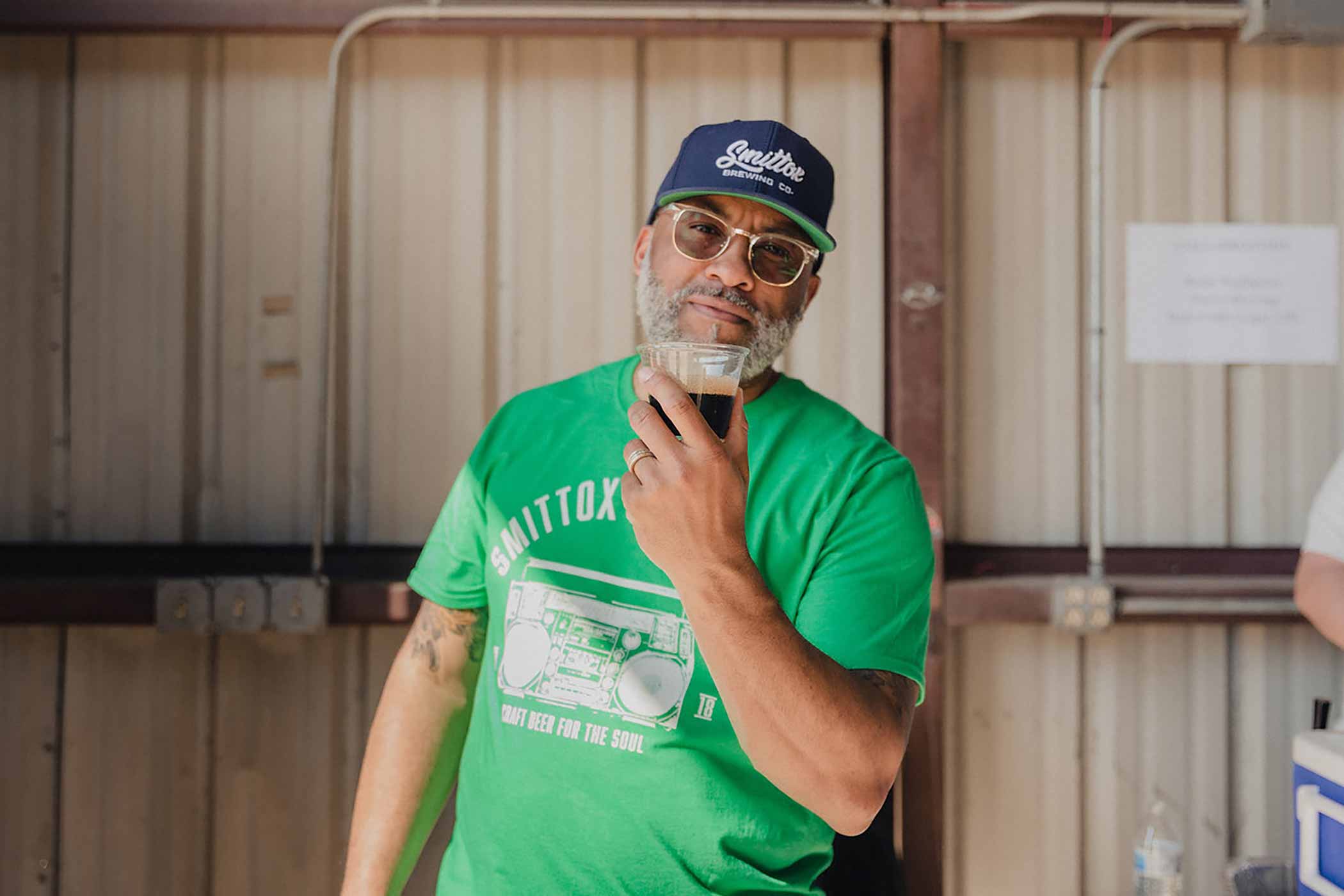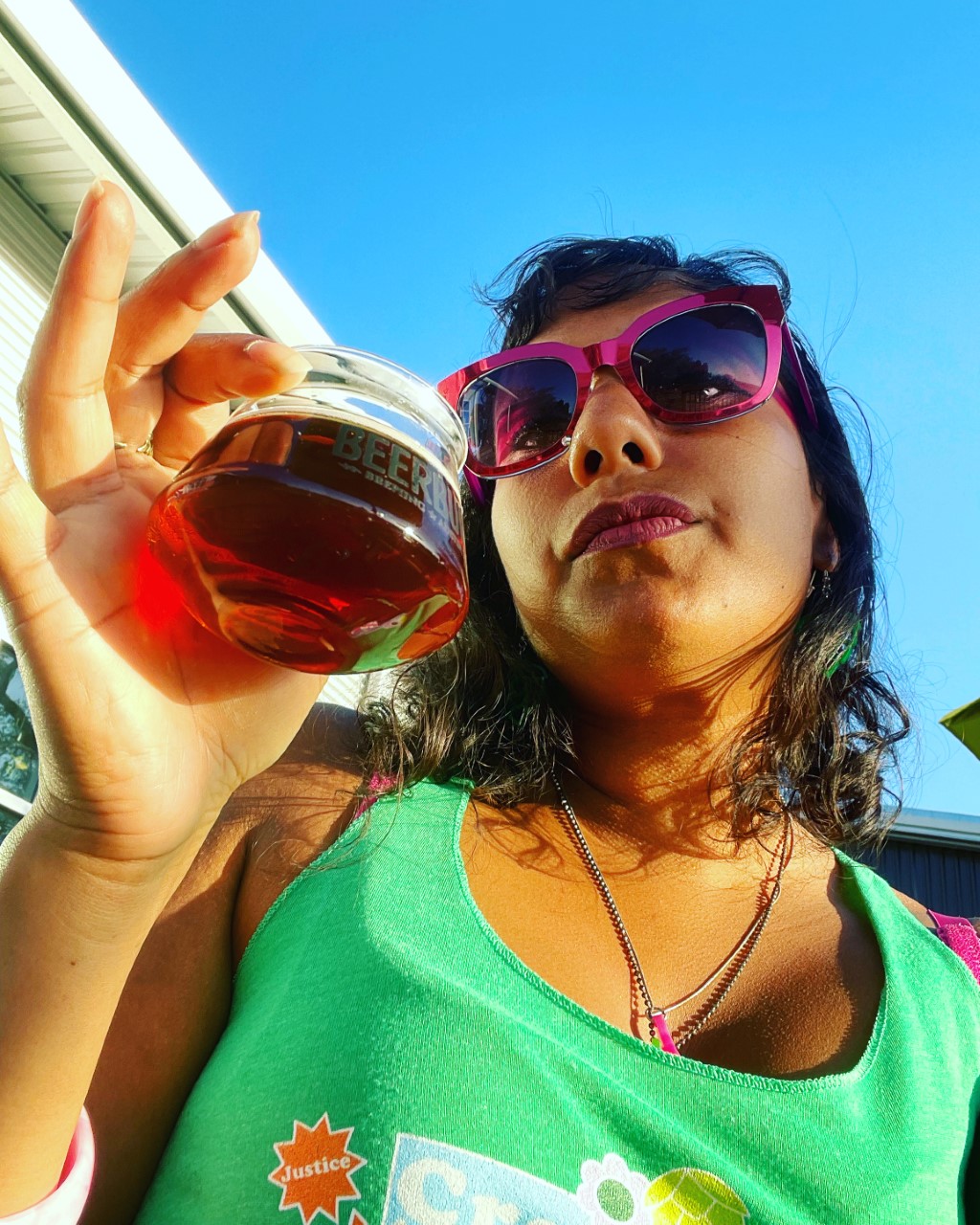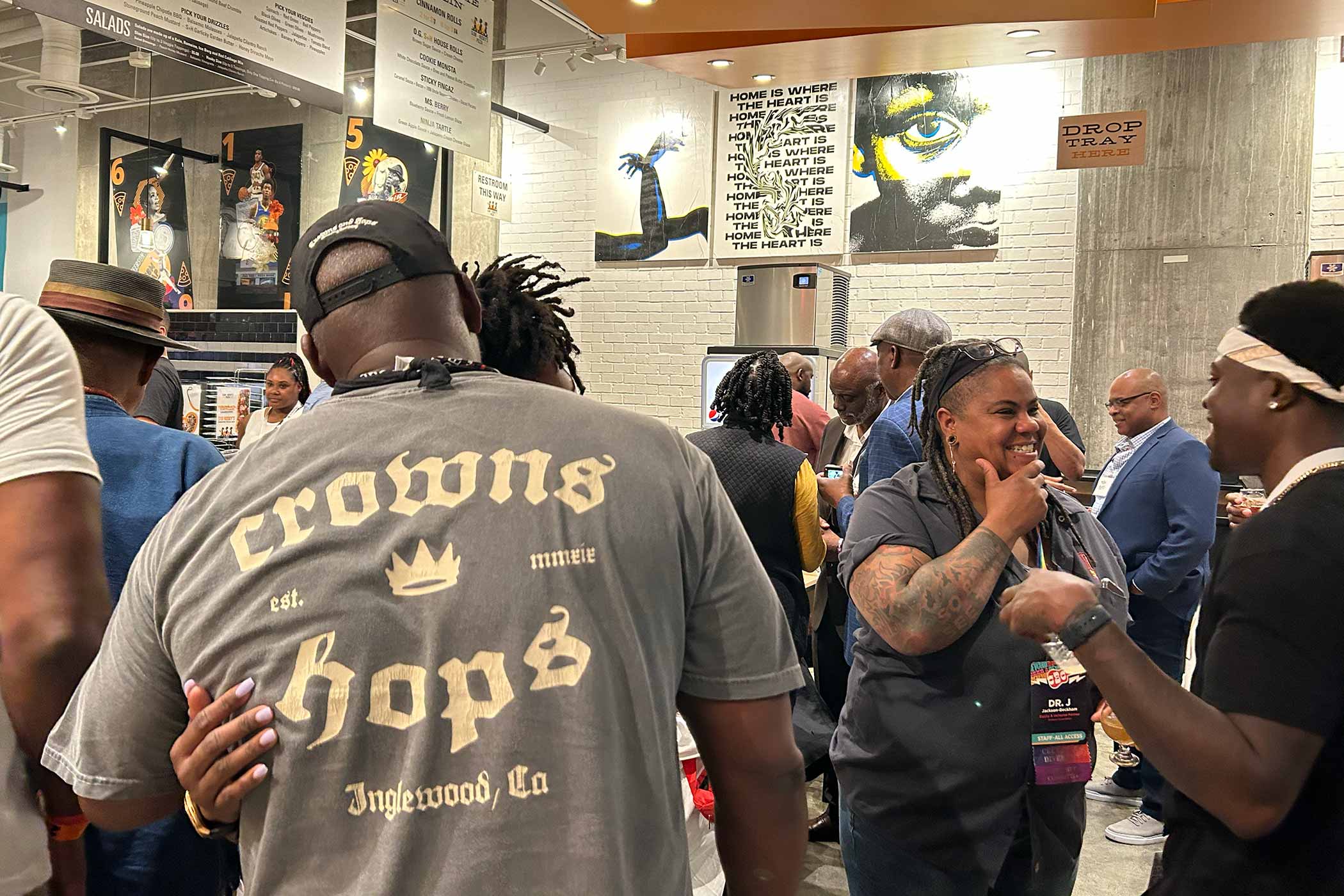Shop
Three New Black-Owned Breweries Diversifying the Texas Beer Scene
Turning up the heat in Texas.
Our Hottest Stories:
Can you guess which state has the largest Black population in the U.S.? You might not immediately think of Texas, but with 3,936,669 Black people, 14% of its total population, the Lone Star State ranks number one, according to recent statistics from the World Population Review. Despite that staggering fact, Texas has only a handful of Black-owned breweries, many located outside of major cities like Austin, Dallas, and Houston.
San Antonio-based Weathered Souls Brewing Company Co-Founder Marcus Baskerville led the charge for Black people in beer with the Black Is Beautiful open-source collaboration beer that took the industry by storm back in 2020. But little has changed on the ground in the Texas beer scene in the intervening three years.
Until now.
Over the next few months, Shannon Harris will launch Urban Jungle in Austin, Kuumba ‘Smitty’ Smith will open Smittox Brewing in Dallas, and Carl Roaches, Jr., Jonathan Brown, Miguel Rodriguez, and Devon Daniel will introduce For The Culture to Houston.
According to the Brewers Association, Black brewery owners still make up just one percent of the industry, but we’re seeing the tides shift. The National Black Brewer’s Association (NB2A) formed in May. Now, the opening of a trio of fully Black-owned breweries in three of Texas’ four largest cities marks a significant milestone for diversity in the state’s beer scene and nationwide.
Introducing Three Black-Owned Texas Breweries
Here’s the rundown.
Urban Jungle
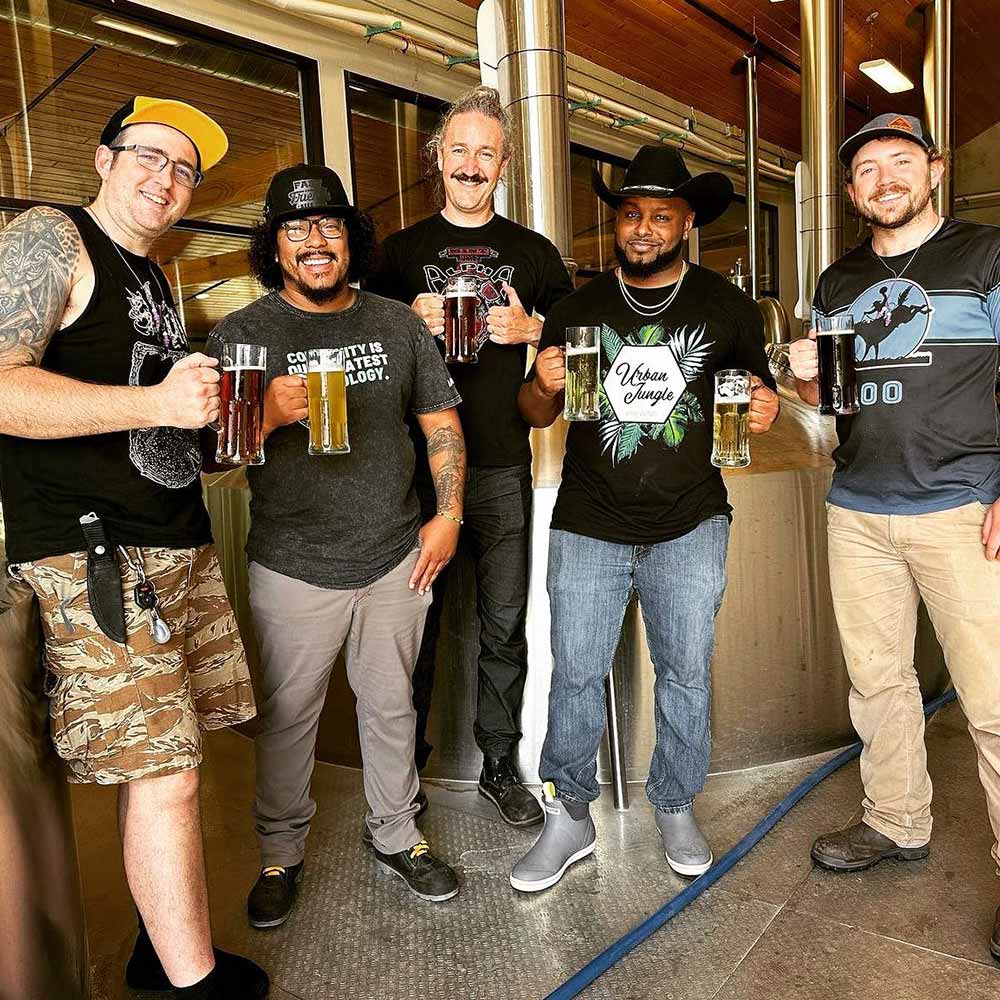
Photography courtesy of @urbanjunglebrew
In Austin, Shannon Harris has been building Urban Jungle Brewing since 2020; he hopes to secure a brick-and-mortar location in 2023.
Harris got into craft beer as a consumer in 2009, moving from Guinness to IPAs and falling in love with North Coast’s Brother Thelonious Belgian dark strong ale. The decision to go pro came after six years as a successful homebrewer, winning awards at local and national competitions, including the National Homebrew Competition, apprenticing at local breweries, and working as a brewery consultant.
Although the pandemic delayed Harris’ plans, he moved forward with collaboration releases with popular Austin breweries, including Batch, Meanwhile, Central District, and Red Horn, and brewed an Urban Jungle Black Is Beautiful release.
Harris is thinking big, planning a large-scale indoor and outdoor space, including a coffee house and bakery along with his brewpub.
“I would love to have a large taproom with an even larger outdoor beer garden for live music, to be pet friendly, and have space for families to enjoy,” he says.
Smittox Brewing
Kuumba ‘Smitty’ Smith is currently renovating his site adjacent to Dallas’ hip Bishop Arts District. After drinking a Sierra Nevada Porter, Smith began homebrewing in 2013, winning awards and recognition. Earning the Martin House Brewing Riverside Shootout home brew competition in 2018 gave Smith the push to plan his own brewery.
Smittox slowly took shape, starting with limited releases and collaborations, including local Dallas breweries like Tupps and False Idol, as well as industry leaders Jester King and Pittsburgh’s Trace Brewing.
The recipient of the Texas Craft Brewer’s Guild’s second Brewery In Planning Grant in 2022, Smith plans to open Smittox’s doors later in the year after a successful crowdfunding campaign.
“Our space is small yet intimate,” he says, “Our brewery will reflect the love we have for music, specifically hip hop.”
For The Culture
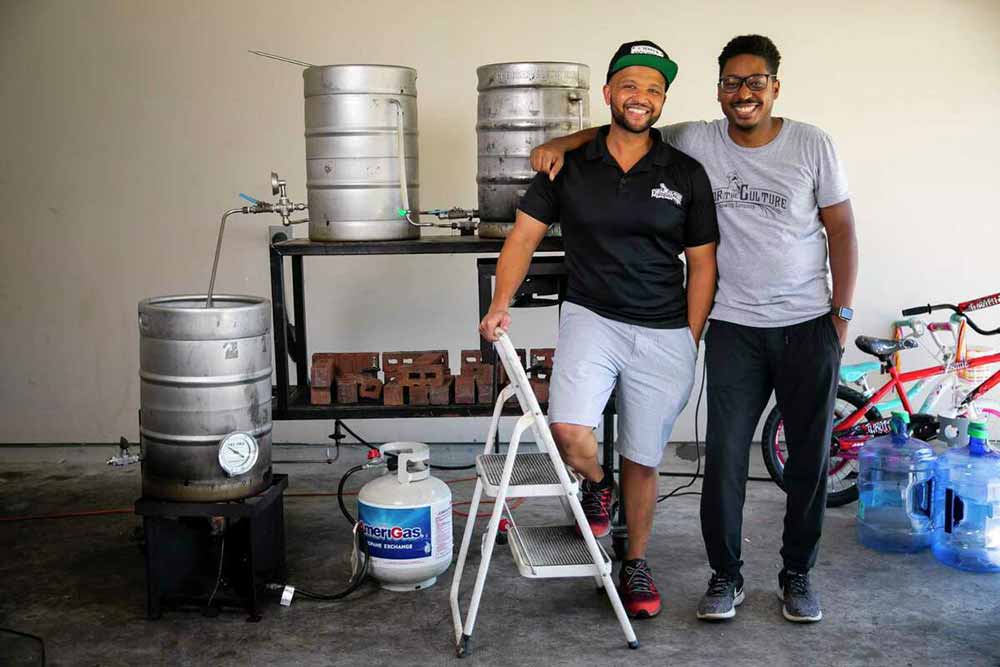
Photography courtesy of Annie Mulligan | Houston Chronicle contributor
For The Culture’s Carl Roaches Jr., Jonathan Brown, Miguel Rodriguez, and Devon Daniel met in high school and college, cementing their friendship through a burgeoning interest in craft beer. The quartet regularly met to share and compare different beers.
After getting hooked on Unibroue’s La Fin Du Monde, “The perfect introductory beer,” says Roaches Jr., the group purchased a homebrew kit and began experimenting.
The night Hurricane Harvey hit Houston, everything changed. “It probably sounds cliché, but with a catastrophic event occurring, it led to the bright idea to do something big and inspiring,” says Roaches Jr.
In 2021, For The Culture joined forces with women-owned Ovinnik Brewing to build a shared space called Craft Culture X. The dual brewery space close to Houston’s trendy Heights brewery hub consists of a two-phase construction plan, the first to be completed later this summer, with indoor and outdoor spaces for guests in the brewery warehouse and a sixteen-tap beer wall. The second phase will be a purpose-built 1,500-square-foot taproom with seating and TVs in an air-conditioned space.
Unquestionably, these new additions to the Texas beer scene will be game changers for People of Color. However, all three breweries experience significant and entrenched barriers to launching their own spaces. While each opening will mark an important step, all of these brewery owners are keen to raise awareness about the challenges of Black people in craft beer.
The Five Biggest Barriers to Entry for Black People in Craft Beer
When it comes to the hurdles Black brewery owners face, Harris, Smith, and Roaches Jr. point to several factors.
Lack of Access and Education
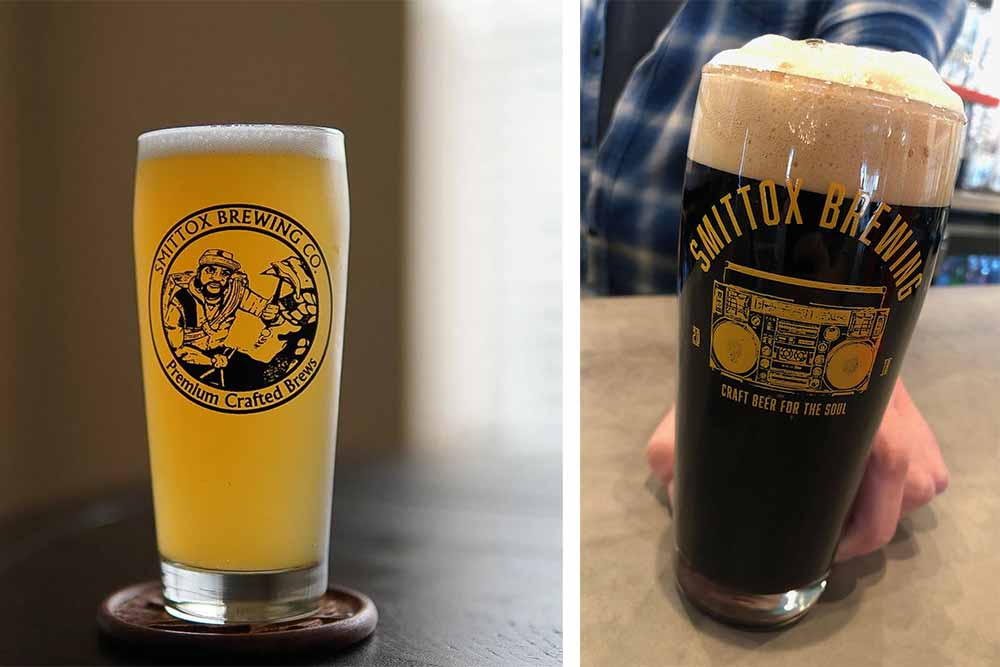
Photography courtesy of Smittox Brewing
Harris, Smith, and Roaches Jr. point out that a historical lack of access and information about good quality beer prevents more Black people from enjoying craft beer and entering the industry.
“Beer was never really a platform for a lot of people within the BIPOC community as only malt liquor advertised to lower income or impoverished neighborhoods,” says Harris. Authors Nathaniel Chapman and David Brunsma highlight this factor repeatedly in the 2020 book Beer and Racism.
Roaches Jr. takes this issue to its natural conclusion. “In the African-American community, only big beer and malt liquor were advertised as viable options for the longest time,” he explains. “The problem is, for anyone with a discerning palate, those options aren’t very good. As a result, many would simply bypass beer as an option altogether.
Changing the culture and the conversation around craft beer in the Black community is a crucial motivator for all three breweries. To break down these historical perceptions, Urban Jungle, Smittox, and For The Culture plan to use their spaces to share their knowledge and passion for beer with other members of the Black and BIPOC community. Starting with their tap lists.
Intimidating or Inaccessible Beer Styles
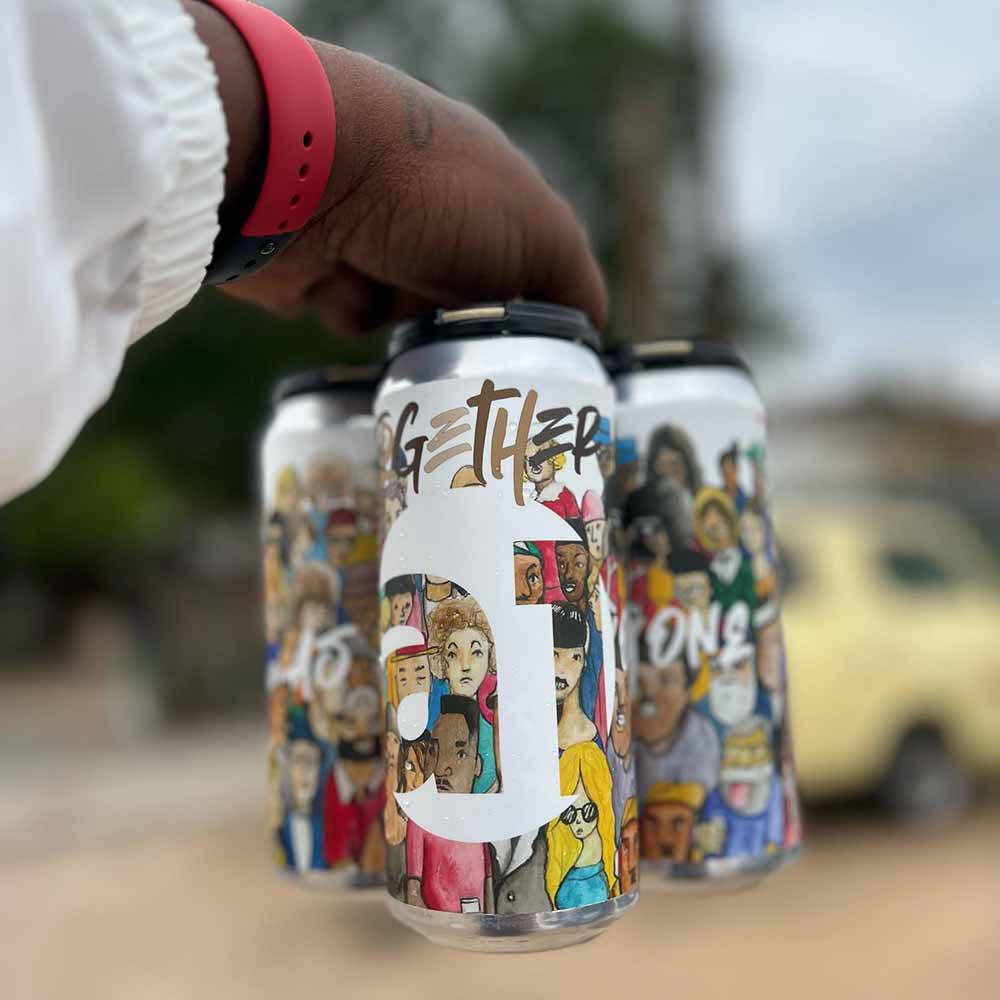
Photography courtesy of @urbanjunglebrew
Often craft beers with strong or overpowering flavors can be a learning curve for new drinkers whose palates haven’t acclimated to the tastes of different ingredients in beer, acting as a de facto barrier to entry to the community. For that reason, all three Black-owned breweries are keen to brew plenty of accessible beers that help ease new drinkers into styles that don’t hit the palate too hard such as lagers, pale ales, hefeweizens, and amber ales.
This is not about dumbing down craft beer but about creating quality beers that show off the craft, welcoming palates from outside the industry and giving them space to adjust.
“Our goal will be making sessionable beers that people can enjoy a couple of during their visit, but we will also have some imperial stouts, double IPAs, fruited sours, and other weird beer,” says Smith, who enjoys brewing hefty stouts and porters best, but appreciates they won’t be for everyone.
Harris is already putting this into practice as part of the As One project, a local collaboration beer initiative he started with Marvis The Middle Man” Dixon, hospitality lead at Fast Friends Brewing. The project aims to reach out to Austin’s BIPOC community by brewing accessible collaboration beers with breweries such as Live Oak, Batch, and St Elmo. These collab beers offer new drinkers a pleasant, positive craft beer experience. Paired with community events, including a block party and a toy drive, As One aims to bring Austin’s beer and BIPOC communities together.
Visibilty and Representation
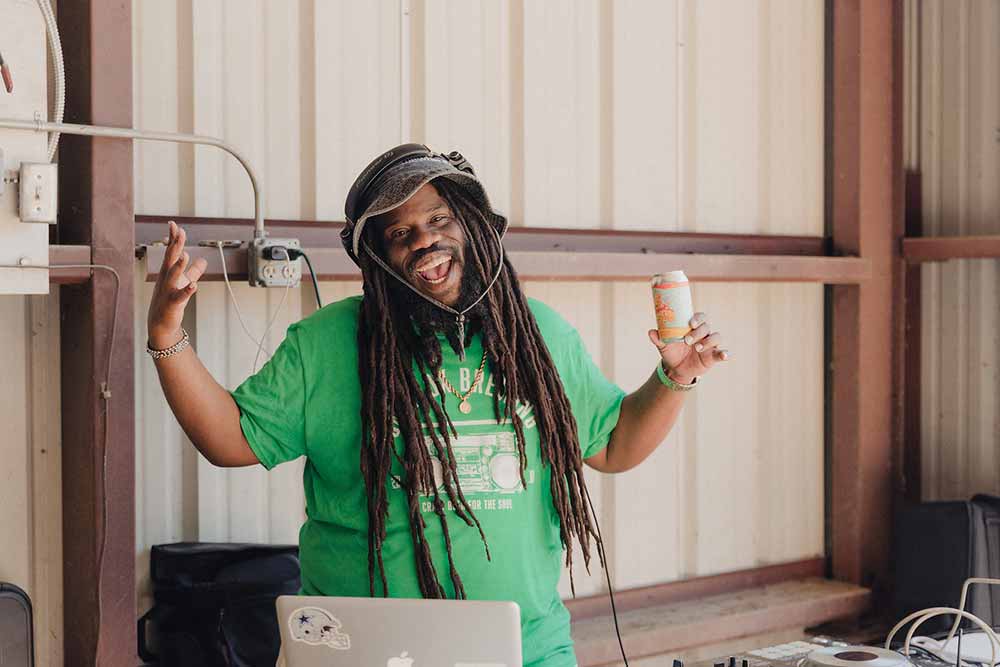
Photography courtesy of Smittox Brewing
All three breweries point to visibility as another critical barrier to entry. While this issue affects all marginalized groups in historically white, male industries, the pace of change has been notably slow in the Texas beer industry, as evidenced above.
The three hope that, by creating Black-owned spaces that celebrate Black ownership, they will encourage their local Black and BIPOC communities to try craft beer.
“I have no issues going to breweries where I’m the only Black person there, but some do,” says Smith, emphasizing the importance of building a space where People of Color feel comfortable and normalized.
Roaches Jr. agrees. “We think it’s important as the first Black-owned brewery in Houston to show the community a reflection of themselves in the beer scene,” he says. “[At Craft Culture X], you will often see Black and Brown brewers and staff, women brewers and staff, as well as [those from] different social and ethnic backgrounds.”
Representation matters, and so does talking about representation.
Lack of Conversation and Recognition
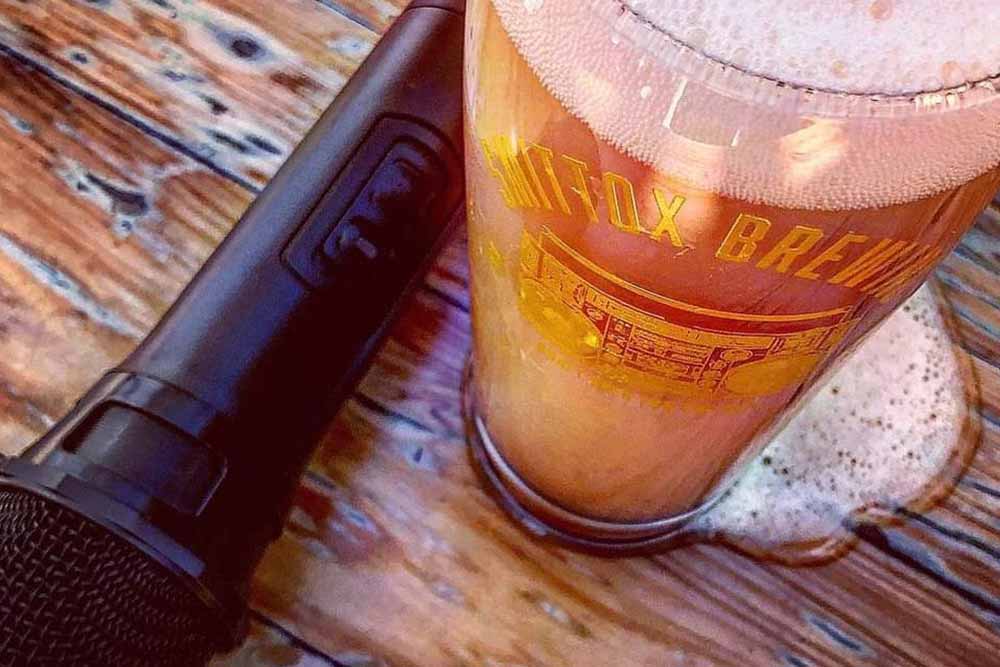
Photography courtesy of Smittox Brewing
Another barrier the three have found is a reluctance among some sectors of the beer community to discuss the importance of supporting and promoting Black-owned businesses in the industry.
For Harris, this attitude is reductive and deliberately ignores the ongoing disparity in industry access. “There’s an importance for continuously mentioning that we’re a Black-owned brewery-in-planning, especially in Austin, where gentrification has been an issue for decades,” he says. “For every article or mention of Urban Jungle Brewing becoming the first Black-owned brewery in Austin, there’s a response of ‘what does color have to do with beer?’ or ‘as long as the beer is good, I don’t care about your race.’ There’s also the threat of not being supported due to the fact of being Black-owned.”
Smith feels similarly about being a Black business leader and acknowledging the challenges facing Black members of the beer community. “I think it’s very important to lead the way for others to show them it can be done,” he says. “Some people make comments about why bring race into this. Why are you focusing on Black ownership? The reason is because it means a lot to Black people and other People of Color that we can do this too.”
Cash and Capital
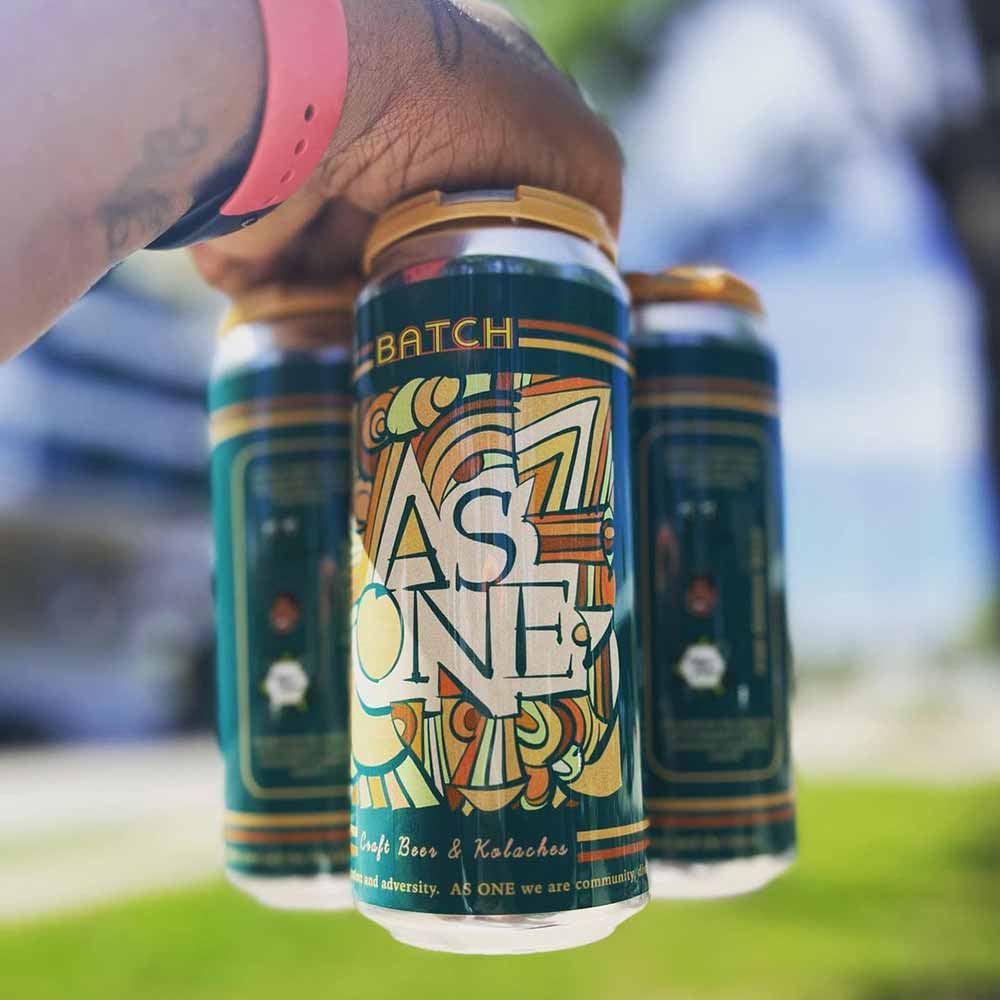
Photography courtesy of @urbanjunglebrew
“We have to remember that African Americans weren’t even allowed to garner bank loans let alone meet for one until the late ’60s, early ’70s, so lending to Black entrepreneurs was discouraged for decades if not centuries,” Harris explains. “Our difficulties todaydecades are related to funding as [brewing] is not the cheapest form of business to get started.”
Smith adds, “A lot of people don’t want to hear it, but People of Color have it hard when it comes to obtaining the large amounts of cash needed for a brewery. It just is what it is.”
Roaches Jr. also pinpoints funding as the biggest hurdle for Black business owners, particularly brewery owners. “No matter how you slice it or dice it, if you don’t have parents to loan you $250,000 like Jeff Bezos, chances are you don’t come from the type of generational wealth that will afford you the convenience,” he says. “Starting a business in the alcohol industry is one of the most difficult and expensive businesses. Unlike other businesses, you can’t fashion your wares or bake your goods and immediately begin selling your items or services the same day. In our case, we had to find a location and equipment, then clear all of the regulatory hurdles before selling an ounce of beer. That’s not including any of the rent, utilities, or other ancillary items that go along with starting a business.”
The National Black Brewer’s Association Impacts Black-Owned Breweries
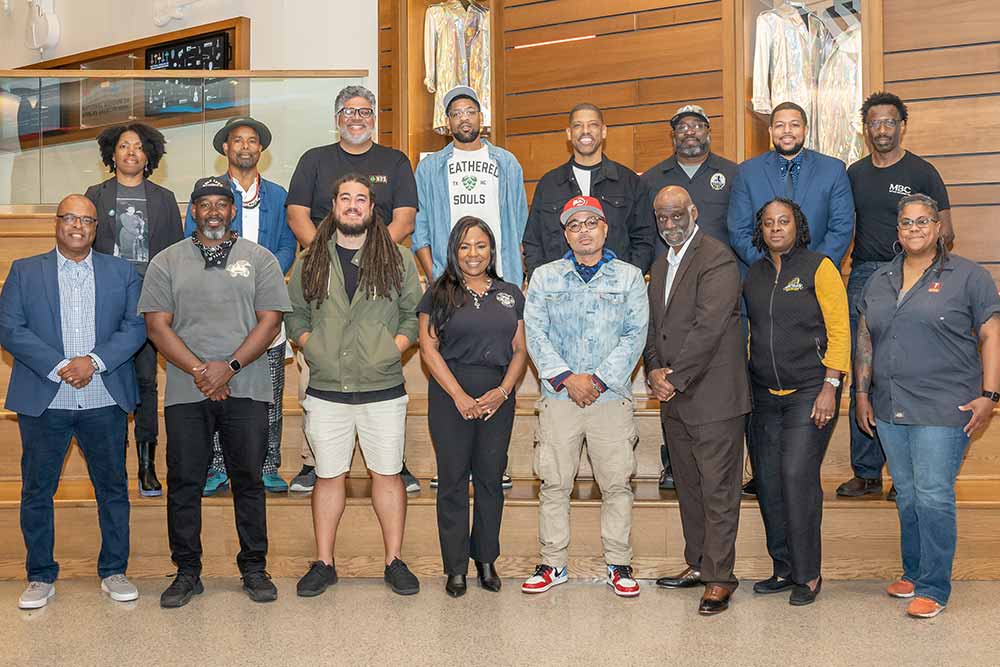
Photography courtesy of National Black Brewers Association
The launch of NB2A at this year’s Craft Brewers Conference (CBC) was, by all accounts, a joyful and positive moment. This new organization will champion Black people in the beer industry through a much-needed combination of funding, mentorship, professional training, and social and cultural awareness-raising.
With its board of directors including industry leaders like Weathered Souls’ Marcus Baskerville; activist, advocate, and educator Dr. J Jackson-Beckham; Green Bench Brewing’s Khris Johnson; and Harlem Brewing’s Celeste Beatty, NB2A promises to tackle the barriers keeping Black people out of brewing careers. The organization will also help startups like Urban Jungle, Smittox, and For The Culture navigate the complexities of opening a brewery, tackling the specific barriers to entry they have faced.
NB2A Executive Director Kevin Asato is optimistic about the impact that the organization will have on the industry and its potential for paving the way for growing numbers of Black people to enter the industry. “NB2A is an embodiment of an emotion, desire, and motivation to see Black ownership in action,” he says. “It goes hand in hand with the foundation and organization of NB2A to see more Black-owned breweries popping up in Texas.”
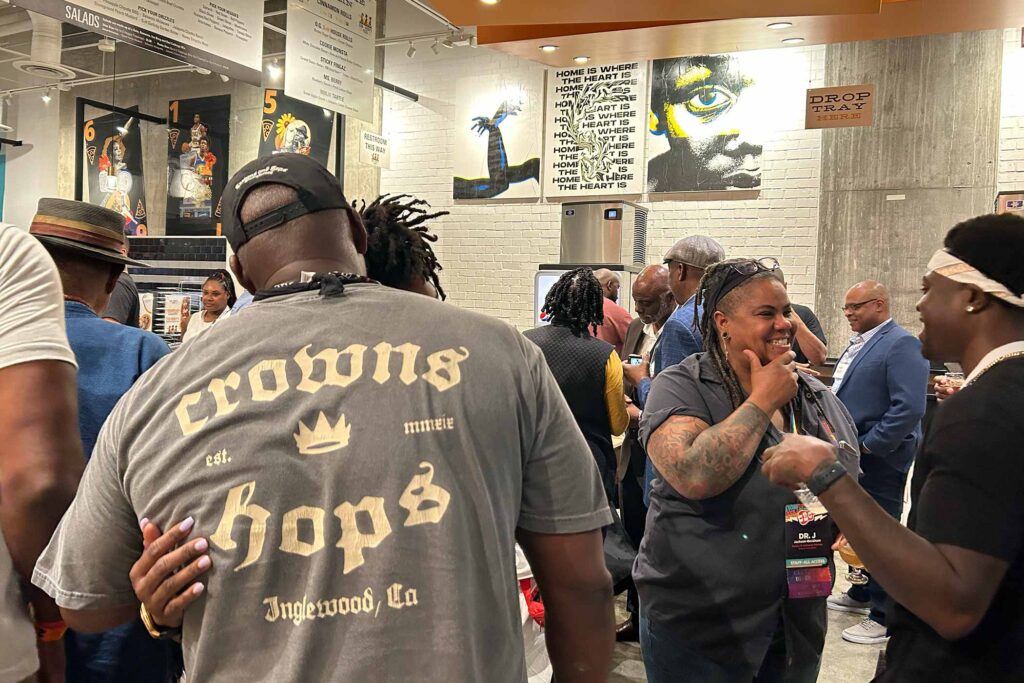
The first-ever bottle share hosted by the newly formed National Black Brewers Association | Photography courtesy of Grace Weitz
Mentorship and sharing of industry knowledge, from financial literacy to building regulations, as well as brewing itself are all resources that Harris, Smith, and Roaches Jr. have struggled to find. But NB2A plans to become a hub for expanding accessibility.
“Drinking from a fire hose is never fun,” says Smith. “Having someone there to coach you through the difficult times makes drinking from the fire hose manageable.”
Asato keenly emphasizes the multiple ways that the NB2A will incorporate both knowledge sharing and resources. Among other things, the NB2A will facilitate financing through loans and partnerships, educate legislators on the impact of Black-owned breweries on the revenue and employment capability of Black-owned businesses, and highlight Black talent through its jobs board and mentorship schemes.
The three new Texas breweries are optimistic about the impact NB2A will have and already support it. “The NB2A will be an essential resource to Black startup breweries,” says Roaches Jr. “Not only does the board of directors have decades’ worth of brewing experience, but these are also individuals that understand the plight of brewery startups from the distinct perspective of its members. That’s invaluable to new brewers in need of guidance.”
Harris agrees. “This is a groundbreaking step to allow more People of Color a seat at the table within craft beer,” he says, “It gives us brewers, brewery owners, and breweries-in-planning more access to resources from peers of the same cultural backgrounds,” he says. “We can congregate, pick the brains of those who have succeeded (or even failed) at something we are looking to do within our own platform.”
For Asato, offering Black-owned breweries such as Smittox, For The Culture, and Urban Jungle what they need means NB2A is on the right track. “This is a trade organization, and the direction of NB2A should be in lockstep with what the brewers want—our voice, direction, and guidance is from the brewers, and it’s great to hear it is consistent,” he says.
Growing the Black Beer Community One Brewery at a Time
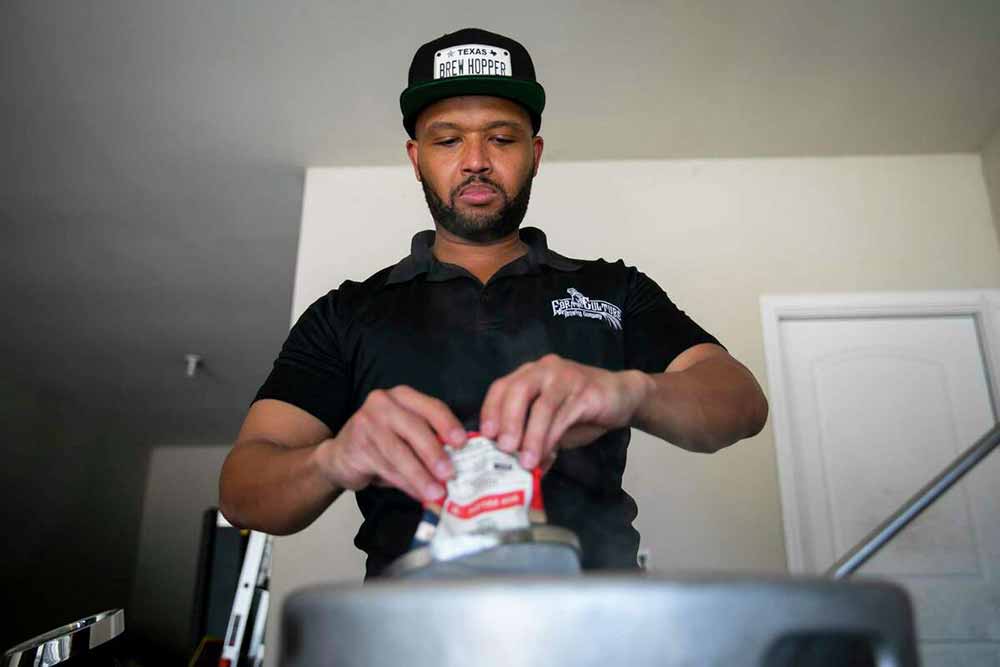
Photography courtesy of Annie Mulligan | Houston Chronicle contributor
As Texans look forward to this new chapter in beer culture, it’s important to remember that while three Black-owned breweries opening may sound like a lot, in a state with over 350 breweries, it’s still less than 1%, not close to being representative of the 14% Black population of the state.
But it’s a start.
For Harris, creating a welcoming and inspirational space will be an end in itself. “I hope that I can get this brewery off the ground and create a safe space for People of Color to not only enjoy craft beer with flavors they have grown up to love but also a safe place for the community to feel welcomed and undercut with others that look, talk, and dress like themselves,” he says. “Having this brewery will hopefully spark something in the next Person of Color to want to open a brewery or give an extra bit of passion to any other project they may be working on.”
Roaches Jr. feels similarly. “Our intention is to provide a wide swath of fermented goodness to expose many demographics to a wide variety of beer options,” he says. “We believe that as exposure to craft breweries as well as craft influencers increases, the craft community will continue to grow in underrepresented demographics.”
Smith wants “Smittox to play its part in creating a diverse environment where everyone is welcome. As the leader of this brewery, I have the responsibility to make sure we are holding true to that,” he says.
It’s a slow process fraught with challenges, but as Urban Jungle, Smittox, For The Culture, and the NB2A prove, the Black beer community grows, one brewery at a time.

